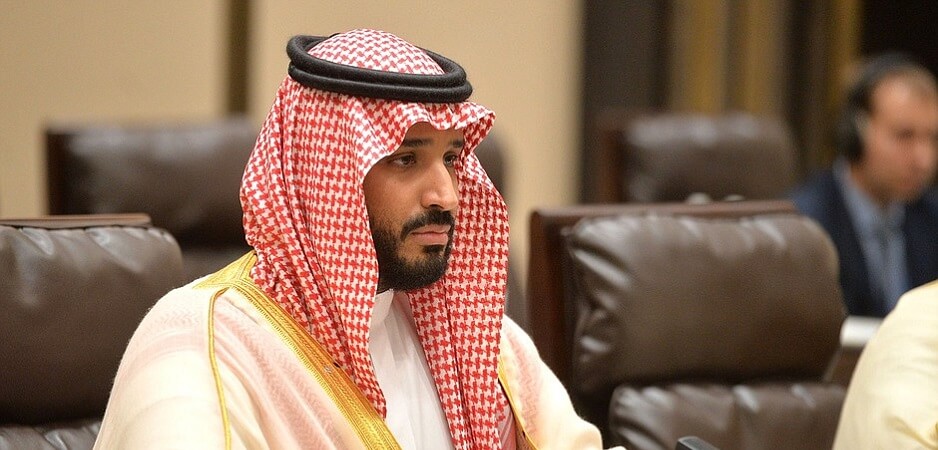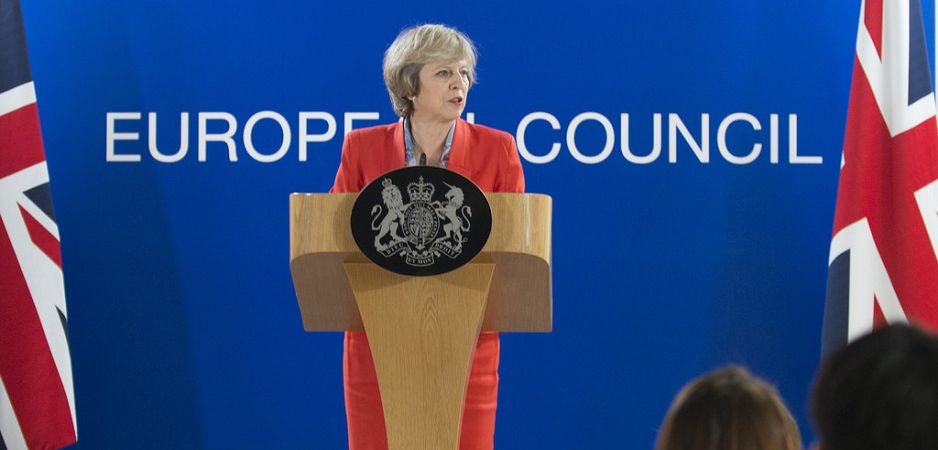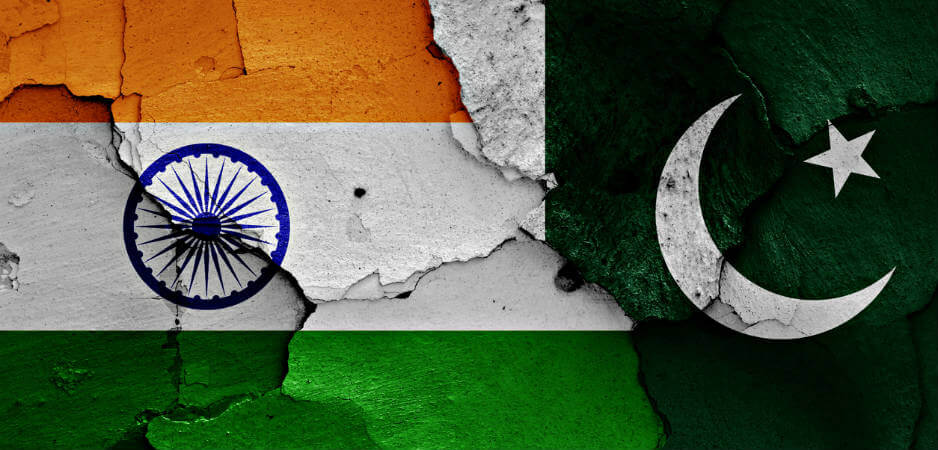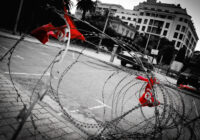The Saudis and their allies present 13 unreasonable and non-actionable demands to Qatar, including shutting down Al Jazeera.
This week, cyber-attacks occurred on the British Parliament, Queen Elizabeth II wore a hat suspiciously similar to the European Union flag, and Prime Minister Theresa May offered to allow around 3 million EU citizens to stay in the UK after Brexit. German Chancellor Angela Merkel called the plan a “good start,” but other European leaders were not too impressed.
More worryingly, an anti-Muslim fanatic ran over worshippers leaving Ramadan prayers outside London’s Finsbury Park Mosque. One man died and 11 others were injured. Bystanders detained the 48-year-old terrorist and handed him over to the police. The British media did not cover the incident promptly or extensively. The chairman of the mosque has complained to the BBC over its coverage.
In the US, Republicans won the most expensive race ever for the House of Representatives. After a grueling four-month campaign, the Republican candidate beat off her Democratic rival in Georgia’s 6th Congressional District. Despite the many controversies of President Donald Trump, Democrats are still lost in the woods and unable to make a convincing case to the voters.
It seems that Travis Kalanick, the maverick chief executive officer of Uber, was unable to make his case to investors and resigned after months of controversy. Last week, he took an indefinite leave of absence. This week, investors pushed him under a bus. The $70 billion company represents the cowboy culture of Silicon Valley and lost $3 billion last year in its race to scale. It remains to be seen how the company fares without its hard-charging if flawed founder and boss.
Elsewhere, more than 60 people died in forest fires in Portugal, while 15 died and 141 went missing when a landslide buried 46 homes in China. Despite six defaults in the past 100 years and a lack of investment-grade rating, investors snapped up Argentina’s 100-year, dollar-denominated bonds. The country raised $2.75 billion, joining the likes of Mexico, Ireland and Belgium in issuing such “century bonds.”
Argentina was not alone in selling sovereign debt. Russia returned to international markets with a vengeance as well, making mockery of US sanctions. Russian companies are doing the same by going on a debt surge. In the first five months of this year, they have issued almost as much debt as for the whole of 2016. Clearly, low interest rates in the richer economies are spurring investors to “frontier economies” and signaling new risks to the global economy. The January 8 edition of The World This Week fretted about the global economic model that is boosting share prices. Today, that model with its cheap interest rates is stimulating demand for yet more risky debt.
Despite momentous developments, it is Saudi Arabia that takes center stage this week for a very simple reason. Saudi security forces foiled a suicide attack on Mecca’s Grand Mosque, the Saudi king broke with tradition to appoint a new crown prince, and Saudi Arabia, along with its three allies, insisted that Qatar meet 13 demands to end a political and economic embargo.
RANCOR DURING RAMADAN
The June 11 edition of The World This Week outlined how Saudi Arabia and its allies had put Qatar in the doghouse. That week, Bahrain, Saudi Arabia, the United Arab Emirates and Egypt severed diplomatic relations with Qatar and suspended land, sea and air traffic. Yemen, the Maldives, Mauritania, Mauritius and Libya’s eastern-based government followed suit. They accused Qatar of supporting Sunni jihadists and cozying up to Shia Iran. Apparently, canny Qataris run with the hares and hunt with the hounds.
Now, Saudi Arabia, Bahrain, the UAE and Egypt have presented Qatar with 13 demands. First, this tiny country on the Persian Gulf must cut off diplomatic ties with Iran. Second, it must sever all ties with “terrorist organizations” such as the Muslim Brotherhood, Hezbollah, al-Qaeda and the Islamic State. Third, it must shut down news outlets that it funds such as Arabi21, Rassd, Al-Araby Al-Jadeed, Middle East Eye and, more importantly, Al Jazeera Media Network. Fourth, it must terminate Turkish military presence in Qatar.
Other conditions insist on total capitulation. The allies want Qatar not to shelter anyone they deem a terrorist, stop supporting any member of the opposition, and stop interfering in their internal affairs. They also want Qatar to pay reparations and compensations for loss of life and money. More importantly, Qatar must “align itself with the other Gulf and Arab countries militarily, politically, socially and economically, as well as on economic matters, in line with an agreement reached with Saudi Arabia in 2014.” Qatar has 10 days to agree to the demands. Once it agrees to their demands, the allies will audit the Qataris for 10 years to ensure compliance.
The demands are breathtaking in their hypocrisy. Saudis and their allies do not want interference in their internal matters but are literally ordering Qatar what to do. Furthermore, they are treating the country like a truant schoolchild who needs incessant supervision.
This is an interesting time in the Middle East. Iraqi forces are retaking control over Mosul and beating back the Islamic State. Reportedly, the Islamic State has blown up the 850-year-old Grand al-Nuri Mosque along with its leaning al-Hadba minaret. In turn, the dreaded group is blaming a US airstrike for the mosque’s destruction. It is from a pulpit in this mosque that Abu Bakr al-Baghdadi proclaimed a caliphate three years ago. Arguably, the threat of extremism is on the wane and the Saudis have less to fear now. Even if Qatar was in bed with the Islamic State, it can do little harm now. Baghdadi and his organization are besieged by Kurdish fighters, Iraqi forces, Russian attacks, American airstrikes and more. So, why are the Saudis throwing up such a stink during Ramadan?
THE STORY BEHIND THE STORY
It is obvious that Saudi Arabia is in much turmoil. The 31-year-old Prince Mohammed bin Salman is now heir to the throne in addition to retaining his position as defense minister. The 57-year-old Prince Mohammed bin Nayef is heir no more and no longer the head of domestic security. The 81-year-old King Salman is apparently no longer a spring chicken and is reportedly not in good health. Mohammed bin Salman has been anointed as future king and holds the reins of his country’s future.
As ever, these reins run from the past. In the words of Gavin Butt of the BBC: “Mohammed bin Salman’s appointment represents the climax of a leadership revolution that began when the late King Abdullah was succeeded by King Salman in January 2015.” Salman’s new team set aside many traditional leadership practices. The deputy crown prince emerged as the most important player in the new dispensation. Not only was he defense minister, but he was also the big boss of the economy, including the all-important oil sector.
 Out went consultations with Saudi Arabia’s rather numerous princes or tortuous attempts to reach consensus. In came decisions that father and son took bilaterally and promptly. Mohammed bin Salman launched Vision 2030, a so-called master plan to end his kingdom’s addiction to oil. McKinsey, the unctuous and pretentious consulting firm full of bright young things from Ivy Leagues, was involved in producing this plan for a country where 70% of the population is under 30.
Out went consultations with Saudi Arabia’s rather numerous princes or tortuous attempts to reach consensus. In came decisions that father and son took bilaterally and promptly. Mohammed bin Salman launched Vision 2030, a so-called master plan to end his kingdom’s addiction to oil. McKinsey, the unctuous and pretentious consulting firm full of bright young things from Ivy Leagues, was involved in producing this plan for a country where 70% of the population is under 30.
It claimed: “Three numbers—two, four, and six—tell the potential benefits” of Vision 2030. By then, McKinsey estimated GDP to double, the non-oil economy to be invigorated by $4 trillion in investment that would come largely from private sources, and 6 million jobs to be created, absorbing the influx of young Saudis entering the job market. Full of trite and glib McKinsey speak, this plan is simplistic and unrealistic. Yet it indicates one key point. The Saudi regime is desperately trying to figure out how to provide jobs to its young people at a time when oil prices are falling.
Father and son did not only announce they would remake the economy à la Deng Xiaoping and Zhu Rongji, but also decided to become a regional superpower to block Iran. In Butt’s words: “Mohammed bin Salman in March 2015 out of the blue launched a military campaign in Yemen.” Other Gulf kingdoms supported the Saudis. Most expected a swift and decisive victory against ragtag Shia Houthi rebels.
Instead, Mohammed bin Salman has led Saudi Arabia into a quagmire. A 2016 Reuters investigation found that, despite Riyadh spending tens of billions of dollars on new US weaponry, its intervention in Yemen “has not gone smoothly.” The country with the third largest military budget in the world has proved that money can buy neither love of Yemenis nor victory in war.
Apparently, the Saudis have violated “international humanitarian law 152 times, including 41 strikes on residential neighborhoods, 22 on medical facilities and 10 on marketplaces.” As per the World Health Organization, Yemen is facing the “world’s worst cholera outbreak,” with 1,310 people dead and an estimated 200,000 infected. At the same time, the Saudis are far from winning the war. Their troops continue to make schoolboy mistakes, demonstrate poor judgment and are low on morale. Mercenaries from Sudan, Eritrea and even Colombia are making their way to Yemen.
The January 3, 2016, edition of The World This Week analyzed the condition of the Kingdom of Saudi Arabia. Unlike McKinsey who sold out for the proverbial thirty pieces of silver, this author observed how beheadings had soared in the country. This author concluded that something was rotten in the kingdom that began 2016 by executing 47 people on a single day. Repression is rising in Saudi Arabia because its oil-filled party is over. The kingdom cannot continue giving subsidies to its people. Therefore, Vision 2030 and war in Yemen are convenient distractions for a pampered young population that is starting to get a rather rude economic shock.
Targeting Qatar is similarly useful. Conflicts are often useful for leaders who are trying to strengthen their hold on power. On November 27, 1095, Pope Urban II sought to unite conflict-ridden Europe under his leadership by launching the Crusades. Vision 2030, Yemen and Qatar give Mohammed bin Salman cover to sideline other princes and tighten his grip on the scepter.
CAN DAVID STAND UP TO GOLIATH?
Qatar is tiny. Many believe that it may not be able to stand up to its neighbors for long. How long can it continue to import food and essential goods from Iran and Turkey? It is much cheaper and more convenient for Qatar to import from Saudi Arabia and the UAE. Its airport is now virtually deserted and its economy is suffering. Standing up to its powerful neighbors will extract a heavy toll on the Qataris. They might come around to the Gulf Arab fold with their tail between their legs.
However, the demands the Saudi Arabia and its allies have put forth are causing unease even in the Trump administration. President Trump has waded into the minefield of the Middle East with little knowledge of history or awareness of geopolitics. During his first foreign tour, Trump danced with the Saudis and did a weapons deal worth $110 billion. Over 10 years, the US will sell weapons worth $350 billion to the kingdom.
Trump and Mohammed bin Salman are rather chummy. Hence, the president has damned Qatar for funding terrorism. However, consistency is not Trump’s strongest suit. Days after damning Qatar, the US sold the country fighter jets worth $12 billion. It turns out that the biggest US military base in the Middle East is in Qatar. Therefore, Secretary of State Rex Tillerson asked the Saudis and their allies to present “reasonable and actionable” demands to Qatar. Tillerson’s request seems to have fallen on deaf years. The demands are anything but reasonable or actionable. They are plain and simple bullying.
Qatar has forged a radical new path in a rough neighborhood. This country of 2.6 million with merely 313,000 citizens is mainly inhabited by non-Arabs, and Indians make up 25% of the population. Qatar has been rather astute in developing a global prestige. In per capita terms, it is the richest country in the world. It has used the money flowing in from oil and gas better than its neighbors. Yet it continues to be highly vulnerable.
It is for this reason that Qatar has been balancing different interests. It may have decent relations with Iran, but it has also been involved in the Saudi misadventure in Yemen. If Qatar does not buckle to Saudi demands, then it might have no choice but to become a junior partner of Iran. For all its wealth, the country’s population, size and location limit its options.
AL JAZEERA AND FREEDOM OF EXPRESSION
Qatar has spent on a range of things from football to education. The tiny country has been strategic about building up its prestige. However, it is Al Jazeera that has put Qatar on the world map. Over time, the formidable media organization has emerged as a credible alternative to the BBC. Much of its journalism has been absolutely first rate, and it has blazed a bold new path in a region not known for free speech.
Of course, Qatar has not been perfect and neither has Al Jazeera. The media network does not criticize the ruling family. Yet it covered the Arab Uprisings in a manner that was fresh and fearless. Al Jazeera has rightly raised long-ignored questions about how Arab states are run. Furthermore, it has covered much of the world from South Asia and Africa to Europe and North America superlatively. Many of Al Jazeera’s journalists such as Marwan Bishara, Mehdi Hasan and Anmol Saxena are a credit to the profession.
The demand to shut down Al Jazeera and other media outlets is ridiculous. As the Al Jazeera boss remarked: “It’s as absurd as it would be for Germany to demand Britain to close the BBC.” Unsurprisingly, publications such as The Guardian and The New York Times have condemned the Saudi-led attempt to shut down Al Jazeera, rein in free speech and muzzle the press. The Saudis and their allies are on the wrong side of history. A restive region with its multiple tyrannies and teeming conflicts needs debate and discussion, not censorship and repression.
Even in places like the US, news media are under threat. According to the Pew Research Center, there are five jobs in public relations for every job in journalism. A senior American journalist remarked in private to this author that this number might be worse. He took the view that many so-called journalists are now public relations professionals. The Fourth Estate is no longer keeping the feet of the powerful to the fire. Smartphones, social media and the internet have combined to trap people in self-reverential echo chambers, enabling the modern fake news phenomenon.
Violence against journalists and state repression are on the rise as well. Egypt has yet to release Al Jazeera’s Mahmoud Hussein who continues to languish in jail. Now it has ganged up with Saudi Arabia, Bahrain and the UAE to go a step further. The rulers of these states are operating on the assumption that by curbing free speech they might be able to hold onto power. They are mistaken. People have tasted freedom. Journalism may be reeling because of state repression, commercial pressures and technological developments. However, the genie is out of the bottle and cannot be put back in again.
*[You can receive “The World This Week” directly in your inbox by subscribing to our mailing list. Simply visit Fair Observer and enter your email address in the space provided. Meanwhile, please find below five of our finest articles for the week.]
Gulf Demands Closure of Al Jazeera
Saudi Arabia and the UAE’s demands of Qatar constitute an effort to rewrite the rules of international relations that uphold the sovereignty of nations.
A list of 13 conditions for lifting the Saudi and Emirati-led embargo of Qatar offers a first taste of Saudi Crown Prince Mohammed bin Salman’s foreign policy approach that, if endorsed by the international community, would call into question fundamental principles governing international relations. The demands — that if accepted by Qatar would turn the state into a Saudi vassal — are unlikely to facilitate a quick resolution of the three-week-old Gulf crisis. In fact, they may complicate a resolution that would allow all parties to claim victory and save face. Saudi Arabia and the United Arab Emirates have reportedly given Qatar 10 days to comply with their demands. Other Gulf states have yet to comment on the list. It was also not clear what steps…. Read more
The Political Consequences of Brexit
It would be naive to think that the divorce between the UK and the EU will not leave scars.
If one reviews European history over the period since the Reformation 500 ago, the role that England has sought to play in Europe has been that of holding the balance between contending powers. It used its naval strength and the overseas colonies that its strength allowed it to hold in order to exercise that balancing European role. At no time in the last 500 years did the United Kingdom seem to disengage from, or turn its back upon, continental Europe. Indeed, England felt so much a part of continental Europe that Henry VIII actually contemplated being a candidate for Holy Roman emperor. Rather, England sought to be sufficiently involved in Europe to exercise its balancing role effectively, but without being so intimately enmeshed in continental issues that it lost… Read more
Prosecuting Rodrigo Duterte: An Interview With Antonio Trillanes
In this guest edition of The Interview, Peter Isackson talks to Philippine Senator Antonio Trillanes IV.
On June 6, a Philippine delegation to the International Criminal Court (ICC) led by Senator Antonio Trillanes IV and Representative Gary Alejano, accompanied by the lawyer Jude Sabio, lodged a formal complaint against Philippine President Rodrigo Duterte for crimes against humanity based on his policies and practices concerning drug dealers and addicts. Since taking office on June 30, 2016, Duterte has launched a brutal war on drugs that, according to Human Rights Watch, has seen more than 7,000 deaths, many indiscriminately carried out by vigilante gangs, with jails teeming to the brim with drug offenders. The scope and brutality of the campaign is such that The New York Times photographer Daniel Berehulak, who had covered wars in Iraq and Afghanistan, as well as the 2014 Ebola epidemic in West Africa, was led… Read more
Understanding Pakistan a Little Better
It is typically characteristic of Indian posturing and narrative to take a moral high-ground vis-à-vis Pakistan’s non-secular existence.
With the spate of violent protests in Kashmir and Pakistan’s allegations of human rights violations and suppression against India, once again the age-old and perennially relevant question in the strategic world has come up: How should India deal with Pakistan? Time and again it has been felt that India has lacked a systematic and long-term Pakistan policy in the last 60 years. Its policy has at most been reactionary, spontaneous and short term, and based on miscalculations. This can be attributed to many factors like absence of communication between the military brass and bureaucratic-diplomatic cabal, or rather the malicious smugness of the latter vis-à-vis the former. Other factors include things like a lack of a nationalist and realistic perspective in strategic thinking among India’s policymaking and intellectual circles. A sort… Read more
Donald Trump is Abandoning Human Rights
Within the first five months in the White House, the Trump administration has begun to degrade the US stance on human rights.
Even before President Donald Trump took the oath of office in January 2017, Human Rights Watch (HRW) declared him a threat to human rights, citing his US presidential campaign as a “vivid illustration of politics of intolerance.” Despite widespread hope that Trump would pivot to a more moderate stance upon his transition from campaigning to governing that was not the case, and HRW’s warning rings chillingly true today. Looking back on the past five months of Trump’s policies reveals a dangerous pattern of de-prioritizing human rights, allowing his administration to have detrimental effects around the world and fundamentally change how the United States interacts with other countries. The day after his inauguration, President Trump signed an executive order reinstating the Mexico City Policy — also known as… Read more
The views expressed in this article are the author’s own and do not necessarily reflect Fair Observer’s editorial policy.
Photo Credit: Kremlin
Support Fair Observer
We rely on your support for our independence, diversity and quality.
For more than 10 years, Fair Observer has been free, fair and independent. No billionaire owns us, no advertisers control us. We are a reader-supported nonprofit. Unlike many other publications, we keep our content free for readers regardless of where they live or whether they can afford to pay. We have no paywalls and no ads.
In the post-truth era of fake news, echo chambers and filter bubbles, we publish a plurality of perspectives from around the world. Anyone can publish with us, but everyone goes through a rigorous editorial process. So, you get fact-checked, well-reasoned content instead of noise.
We publish 2,500+ voices from 90+ countries. We also conduct education and training programs
on subjects ranging from digital media and journalism to writing and critical thinking. This
doesn’t come cheap. Servers, editors, trainers and web developers cost
money.
Please consider supporting us on a regular basis as a recurring donor or a
sustaining member.
Will you support FO’s journalism?
We rely on your support for our independence, diversity and quality.











